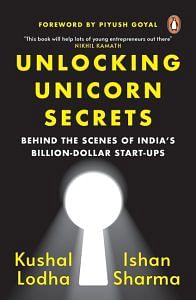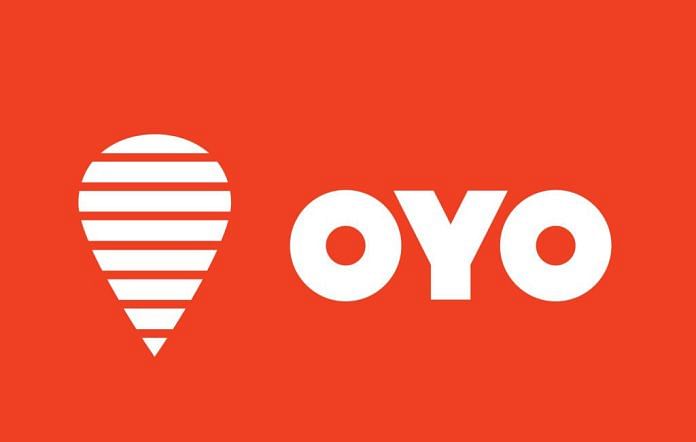Ritesh is the sole founder of OYO and he works with his senior management who advise him on what to do and what not to do. But when OYO started, it was just him, Anuj and a few interns running it.
Anuj has been a part of OYO since its inception. He was an IIT BHU graduate, who reached out to Ritesh when he had just started OYO. Ritesh knew he could not afford someone from an IIT and told Anuj so. But Anuj had probably seen the potential of the company and agreed to join without a salary, asking for ESOPs (Employee Stock Ownership Plans) instead.
Thanks to that, Anuj is worth a few hundred crore rupees today. The risk he took with OYO was big, but so is his reward. There are many other employees whom Ritesh relies heavily on and considers them the equivalents of co-founders as they have always stood by him through tough times.
Ritesh says that there is no art to finding such people. You have to keep meeting new people until you feel that click. Sometimes that takes many months, or if you’re lucky that might not take even a week.
Having a strong sense of gratitude and mutual respect towards each other is crucial for a team to ensure the success of a start-up. This positive dynamic ensures that everyone on the team feels valued and appreciated for the unique skills and contributions they bring to the table. In addition, having complementary skill sets can help the team work more efficiently and effectively towards their shared goals.
Also read: Andaman & Nicobar enhanced India’s role in Bay of Bengal. Open them up for US, Japan, France
Employees at OYO aren’t called employees, they are called OYOpreneurs. The notion is to make everyone feel that they are not just an employee but an entrepreneur in their own standing. This itself speaks volumes about the company’s work culture.
Promoting open conversation and a culture of transparency is essential for building a strong and cohesive workplace. By taking the time to get to know your employees on a personal level, you can build a sense of belongingness and foster a sense of community within your organization.
When everyone feels heard and has the opportunity to speak up, it creates an environment where innovation and creativity can flourish. This can help to build what Ritesh calls an ‘urban innovator mindset’ and encourage employees to believe that they can make a positive difference at work and in the wider community.
By fostering a culture of openness and transparency, you can create a workplace that inspires employees to bring their best selves to work each day, resulting in a more productive and positive work environment. Ritesh says he also strongly believes in wealth creation for all team members. Around 80 per cent of OYO employees own some kind of stock in the company.
‘Venture capitalists always look for the red flags.’
Venture capitalists are not going to straightaway invest in your company. They spend many days assessing your idea and looking for things that can go wrong. Ritesh’s advice to young entrepreneurs is to be transparent about the shortcomings of their start-ups.
Tell your investors the good and the great, but also tell them about the bad. If they find out about the bad on their own, which they eventually will, their trust is gone. But if you tell them about your shortcomings yourself, you can build a deeper relationship with them, where you both have a similar vision for the company.
Also read: India doesn’t need to one-up enemies’ nuclear weapons. Its doctrine implies size doesn’t matter
‘When it comes to dilution, anything more than 20–25 per cent is too much.’
Ritesh believes that you should dilute your stake as little as possible, especially in your initial stages. Secondly, you should try to get investments from people who have built start-ups before, as they would have a better understanding of the nuances and appreciation for even your smaller victories.
If possible, you should also avoid tranche investments, where venture capitalists and other investors split their investment into parts. You should try to raise as much money as possible in one go.
Also read: Buddhist viharas were sites of business. They weren’t just ‘monasteries’
‘I start my day with the most complex problems.’
Ritesh likes to wake up reasonably early in the morning, around 6, and after looking at some key insights from the previous day, starts getting ready for work. He likes to start his day with the most difficult problems on his list—new, strategic challenges on how to improve OYO’s conversion rates, or improve ratings, etc. He also likes to prepare for meetings beforehand to make them as productive as possible.
The afternoons are for regular reviews, business reviews, customer service meetings and other similar things. He also tries to meet some OYO hotel operators and homeowners personally to have a better understanding of their working. The evenings are for problem-solving conversations and for interacting with HR, legal, finance and other teams, to be as thorough about the current situation as possible.
Ritesh strongly believes that entrepreneurs should make free time for themselves. That is essential for their overall well-being. For this reason, he has incorporated reading as a daily habit. He also spends his free time watching history documentaries, his recent favourite being The Men Who Built America from the History network.
‘I want OYOpreneurs to be remembered as people who impacted millions.’
Ritesh believes that OYOpreneurs are a unique breed of individuals who have chosen to venture into one of the toughest of industries. They have taken on numerous challenges and obstacles, with the drive to make a difference and leave a lasting impact, and hence inspire millions of people who will come along the way in OYO’s journey.
‘Chase business excellence, capital excellence will follow.’
Raising capital is just one step in the journey of building a successful business. It is important to create an ecosystem and a service that consumers want to buy. This requires strong commitment and perseverance. Even during the times when there is no capital available, it is essential to remain committed to the mission and not give up.
High perseverance is a crucial trait for entrepreneurs, as building a successful business requires persistence. If you are dedicated to your mission, it is important to stay focused and not give up, no matter what the circumstances may be.
 This excerpt from ‘Unlocking Unicorn Secrets’ by Kushal Lodha and Ishan Sharma has been published with permission by Penguin Random House India.
This excerpt from ‘Unlocking Unicorn Secrets’ by Kushal Lodha and Ishan Sharma has been published with permission by Penguin Random House India.



